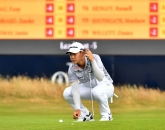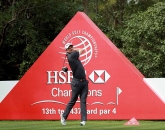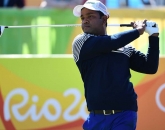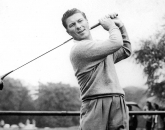As we watch our local junior golfers performing so well, it’s tempting to think of them as “prodigies” and imagine a glory filled future for them all. However, the prodigy who becomes a successful adult is a very rare breed indeed.
Surprisingly (at least to my way of thinking) the term itself has nothing to do with Calvinists or big beat bands. Instead it comes from the Latin prodigium, meaning omen or portent, a harbinger of change. It can also mean something that violates the natural order. It tends to be used to describe precocious talent in the very young, more formally “a child, typically younger than 15-years-old, who is performing at the level of a highly trained adult in a very demanding field of endeavor” – and every year we hear of numerous supposed examples from all walks of life.
However, when one looks at the startling achievements of, say, Mozart or Picasso as children, it’s clear the term is somewhat overused, although Hong Kong’s own March Tian Boedihardjo probably qualified when, in 2007, he became the SAR’s youngest university student at the age of nine.
Given the “adult level” performance criteria, sports and especially contact sports tend not to have many prodigies. Nevertheless, golf seems to be particularly “blessed” with supposed wunderkinder. The internet is groaning under the weight of videos showing kids with great swings, which may make them better than their peers, but which hardly qualifies them as true prodigies. As a self-proclaimed borderline golfing prodigy myself (perhaps failing on the talent and age criteria, but undoubtedly violating the natural order), I went looking for past and current examples. From the innumerable claimants, I found what I believe to be ten of my fellow early achievers and gave each a Prodigy Rating (PR):
Pages
Click here to see the published article.











